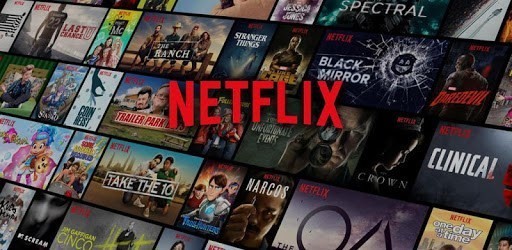CNBC에 따르면, 투자자들은 넷플릭스가 미디어 회사인지 기술 회사인지에 대해 10년 넘게 논쟁을 벌여왔다. 넷플릭스의 공동 창업자이자 공동 CEO인 리드 헤이스팅스가 이에 대한 답을 내놓았다.
헤이스팅스 CEO의 신간 “No Rules Rules”에 소개된 넷플릭스의 기업 문화는 실리콘 테크 스타트업의 전형을 보여주고 있다. 정직성과 투명성을 파격적으로 강조하고, 휴가 정책이나 연말 인사평가와 같은 전통적인 기업 문화와는 거리가 먼 모습이다. 사용자 인터페이스와 함께, 독자적인 기술을 기반으로 한 추천 알고리즘은 다른 스트리밍 비디오 서비스와 차별성을 두고 있다.
그러나 AT&T의 워너미디어(WarnerMedia)와 컴캐스트(Comcast)의 NBC유니버설(NBCUniversal)과 같은 미디어 회사들도 자체적인 구독형 스트리밍 서비스 시장에 뛰어들면서, 넷플릭스와 전통적인 미디어 기업과의 경계가 희미해지는 것처럼 보인다.
헤이스팅스 CEO는 인터뷰에서 “미디어“라는 단어의 사용을 경계하며, 넷플릭스를 정의할 때 가장 어울리는 말은 “엔터테인먼트 회사“라고 말했다.
그는 또한, CNBC와의 인터뷰에서 “넓은 관점에서 보자면, 미디어는 일반적으로 광고를 포함합니다”라고 언급하며 다음과 같이 설명했다.
“우리는 기술력에 기반을 둔 회사지만, 실제로는 마이크로소프트나 구글 같은 회사가 아닙니다. 우리는 단일 애플리케이션, 단일 서비스를 제공합니다. 이는 모두 엔터테인먼트에 관한 것입니다. 우리는 실리콘 밸리보다 할리우드에 더 많은 직원을 두고 있습니다. 우리 회사 지출의 2/3는 컨텐츠에 투자하고 있습니다. 이처럼, 우리는 정말 엔터테인먼트 회사라고 말할 수 있습니다.”
넷플릭스를 분류하는 것 자체가 큰 의미가 있는 것이 아닐수 있으나, 투자자가 기업을 평가할 때에는 이러한 부분이 실제로 영향을 미친다. 넷플릭스는 디즈니와 라이온스게이트(Lionsgate)를 포함한 다른 모든 엔터테인먼트 회사보다 주가수익비율(PER)이 월등히 높다. 이러한 회사들은, 최근 몇 년 동안 디즈니 플러스(Disney+)나 Starz 같은 글로벌 스트리밍 서비스 개발을 통해, 넷플릭스와같은 서비스를 제공하는 사업자로 거듭나기 위한 노력을 하고 있다. 지금까지 투자자들은 전통적인 엔터테인먼트 회사에 대해서, 넷플릭스와 동일한 기업 가치평가를 제공하는 것에 부정적인 입장을 취하고 있다.
하지만 헤이스팅스 CEO는 기존 미디어 회사들도 전적으로 스트리밍 서비스에 집중한다면 넷플릭스와 경쟁 할 수 있다고 말했다. 그는 워너미디어가 새로운 블록버스터 “테넷”을 HBO Max에 바로 공개하지 않은 반면, 디즈니는 새 영화 “뮬란“을 디즈니 플러스에 (30달러의 추가 비용으로) 즉시 공개한 것에 대해 칭찬했다. 코로나19의 전 세계적인 유행이 지나간 후에도, 어느 회사가 계속해서 신작 영화를 스트리밍 서비스에 바로 올릴지는 지켜볼 일이다.
“집중과 헌신이 필요합니다.”라고 헤이스팅스 CEO는 말했다. “워너(Warner)의 예를 볼까요? 워너는 “테넷“을 HBO Max 서비스에 바로 공개하지 않았지만, 디즈니의 뮬란은 스트리밍 서비스로 직행했습니다. 이 점만 봐도 디즈니가 워너보다 스트리밍 서비스에 더 전념하고 있다고 말할 수 있죠. 이것은 정도의 문제입니다. 저는 두 회사가 나름의 전략을 가지고 내린 결정이라고 봅니다. 어떻게 될지 두고 보죠.”
헤이스팅스 CEO는 디즈니의 폭스(Fox) 인수, 비아콤(Viacom)과 CBS의 합병과 같이, 넷플릭스와 경쟁하기 위한 전통적인 미디어 회사들의 합병이 이어질 것이라고 내다보고 있다.
그는 “우리가 디즈니의 폭스 인수에서 봤듯이, 기존 사업자들의 통합이 계속해서 이어질 것입니다. 경쟁에서 이기려면 일단 몸집을 키우는 것이 일반적이죠.”라고 말했다.
For more than a decade, investors have debated whether Netflix should be considered a media company or a technology company. Now Netflix co-founder and co-CEO Reed Hastings has given an answer.
Netflix’s culture, as outlined in Hastings’ new book “No Rules Rules,” is emblematic of a Silicon Valley tech start-up, emphasizing radical honesty and transparency and doing away with corporate traditions such as vacation policies and end-of-year reviews. Its technology-driven recommendation algorithm sets it apart from other streaming video companies, as does its user interface.
But as media companies such as AT&T’s WarnerMedia and Comcast’s NBCUniversal develop subscription streaming services of their own, Netflix has started to look more similar to traditional media.
In an interview, while Hastings quibbled with the word “media,” he said Netflix was best defined as “an entertainment company.”
“Media tends to involve advertising,” Hastings told CNBC’s “A View from the Top.”
“Tech, I mean, we’re tech-powered, but we’re not really like Microsoft, that’s in multiple areas of tech, or Google. We’re a single application, a single service. It’s all about entertainment. We have more employees in Hollywood than we do in Silicon Valley. Two-thirds of our spending is on content. So we’re really an entertainment company.”
While the correct classification for Netflix may be semantics, it can have real-world relevance in how investors value companies. Netflix has a much higher price-to-earnings ratio than other entertainment companies, including Disney and Lionsgate. Those companies have begun attempting to turn themselves into entities that look more like Netflix in recent years with the development of global streaming services such as Disney+ and Starz. So far, investors have balked at giving traditional entertainment companies the same valuation multiple as Netflix.
Still, Hastings said it was possible for traditional media companies to compete with Netflix — if they’re willing to focus completely on streaming. He applauded Disney for putting new release “Mulan” on Disney+ immediately (albeit for $30 extra) while noting WarnerMedia did not put its new blockbuster “Tenet” directly on HBO Max. It remains to be seen if either company will continue to put new movies directly on streaming services after pandemic quarantines are lifted across the globe.
“All it takes is focus and commitment,” said Hastings. “Let’s look at Warner. They did not put ‘Tenet’ on the HBO Max service, but Disney did put ‘Mulan’ on it. So you’d say Disney’s incrementally more committed to their service than Warner. So it’s a matter of degree. I’m sure they have good reasons in those cases. We’ll see.”
Hastings also predicted traditional media companies will continue to consolidate in an effort to compete with Netflix, such as Disney’s acquistion of the majority of Fox and Viacom’s merger with CBS.
“I think you’ll also see continued combinations of the existing players, just like you saw with Fox and Disney coming together,” Hastings said. “Typically you bulk up to take on the other guys.”




![[텐투의 게임라이브옵스] 구글 애즈(Ads) 전환은 어디까지 진짜일까?](https://mobiinsidecontent.s3.ap-northeast-2.amazonaws.com/kr/wp-content/uploads/2024/07/03150618/240704_%EA%B5%AC%EA%B8%80-%EC%95%A0%EC%A6%88-%EC%A0%84%ED%99%98_%EC%84%AC%EB%84%A4%EC%9D%BC-218x150.jpg)
![[TBWA 디지털 마케팅] 구글 생성형 AI 검색 SGE란 무엇인가?](https://mobiinsidecontent.s3.ap-northeast-2.amazonaws.com/kr/wp-content/uploads/2024/07/02103140/240703_SGE_01-218x150.jpg)
![[쉽게 읽는 최신 IT 트렌드] 안드로이드 앱, 누구나 만들 수 있을까?](https://mobiinsidecontent.s3.ap-northeast-2.amazonaws.com/kr/wp-content/uploads/2024/06/26132847/%EB%8B%A4%EC%9A%B4%EB%A1%9C%EB%93%9C-1-1-218x150.jpg)
If you know how to play gambling and you are rich enough to spend your money on it, then you should check out starburst free play and try to play there.